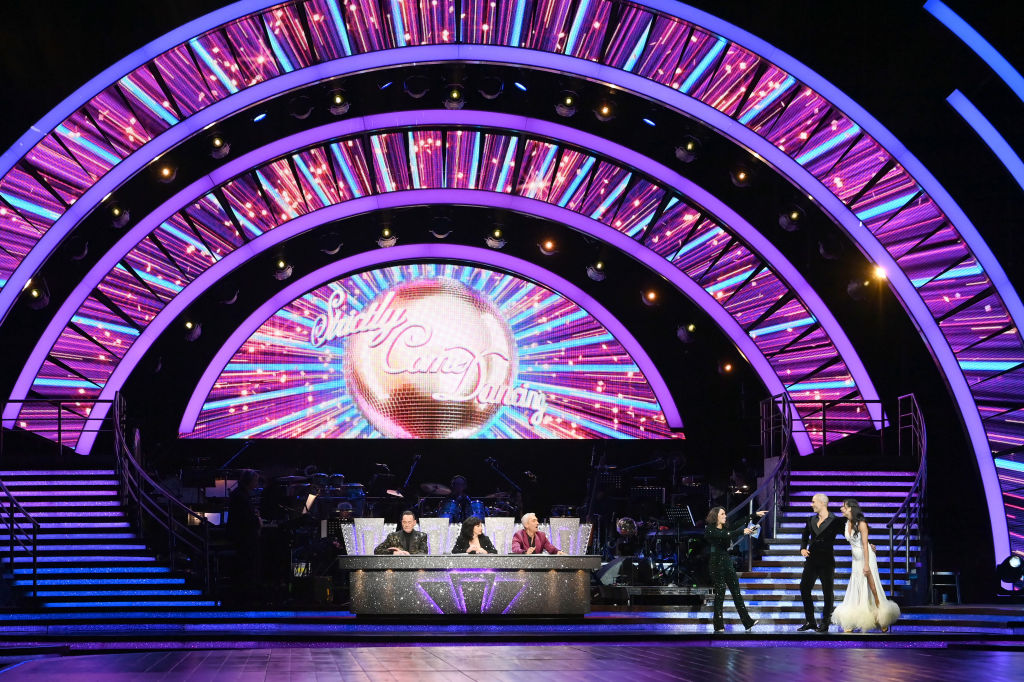The BBC’s Strictly Come Dancing returned this weekend, but rather than being met with the usual fanfare there is a growing feeling that the glitter ball may have been irreparably tarnished. Some former contestants have alleged that they were subject to bullying by their professional partners and – having already used almost 300 contestants in its now 20 year history – many think that the producers have been scraping the bottom of the celebrity barrel in recent years. Such criticisms have led to speculation that it might be time to cancel the show.
Cancel culture won’t yet claim Strictly as another victim.
There are signs of life, however. This year there has clearly been an attempt to secure some genuine celebrities amongst the fifteen hopefuls. I’d even heard of a few, including Toyah Wilcox, Paul Merson and Nick Knowles. But the usual diverse collection of actors, athletes and comedians still includes contestants who came to fame through other reality shows such as the X Factor, The Only Way is Essex and Love Island. Strictly certainly plays its part in the merry-go-round of reality TV fame.
Another influence carried over from the schmaltz of reality shows, such as X Factor, has been to shift airtime away from the dancing and towards the personal stories of the contestants, generally delivered with a heavy dose of sentimentality.
The show has changed a lot over twenty years. The first series had only eight contestants and the shows were shorter. I spoke with former judge, Dame Arlene Phillips who told me that she still watches the show, albeit online: ‘I watch the dance because that’s where my love lies and always will and I especially love the opening group choreography in the results show.’ I was left with little doubt of her conviction that the show will survive these recent upheavals.
Strictly has prospered where other dance shows have failed. I preferred So You Think You Can Dance, a contest for professional dancers across different genres, but it only lasted in the UK for two seasons. It has remained hugely successful in the USA, airing for over 300 episodes since its launch in 2005. By coincidence, the American show has had its own problem with its creator, Nigel Lythgoe, having to step down as a judge in January, following a sex abuse lawsuit filed by Paula Abdul, one of the show’s former judges. Lythgoe denies this and three other claims of sexual assault.
Although the BBC initially deemed Strictly to be too British to be marketable overseas, it’s protégé, Dancing with the Stars, is now a worldwide phenomenon. Since starting in 2005, the American series has clocked up 32 seasons and almost 500 episodes. The format is now airing across Europe, North and South America, Africa, Asia, Australasia and the Arab World. According to the trade magazine Television Business International, it has been the world’s most popular TV programme in terms of a collective global audience. The international popularity of Dancing with the Stars (in all the show’s different guises) shows no sign of waning despite those local difficulties in the UK.
One issue that sets Strictly apart from other TV dance contests is the gossipy undercurrent of possible romantic connections between the professional/celebrity pairings, bringing a Love Island element to the show. Some appear played up for the media, others are short-lived while a few become long-term. The Countdown presenter, Rachel Riley may not have fared well as a dancer (she made it to week six of the 2013 series) but it brought marriage to her professional partner, Pasha Kovalev, and two children. While it’s true that difficulties between a tiny proportion of the near-300 partnerships to date have caused the recent media maelstrom, it’s also the case that more of these pairings have led to consensual relationships, an additional element of the programme’s enduring appeal.
The choreographer, Sir Matthew Bourne, has been a fan since the very beginning, often tweeting comments after every show. I asked him why the show will endure. ‘No other show has captured quite so vividly the capacity for a complete novice to find the genuine joy of dancing,’ he told me, ‘It has also, in a very positive way, supported the notion that dance is for everyone, and same sex partnering has been revolutionary for a primetime family show, trumping our national ballet companies in its daring and inclusion. It has turned the nation into discerning armchair critics of what makes a good dancer or good choreography. However, there are other aspects of the programme, such as fierce competition, hard work and dedication that don’t suit all contestants, resulting in recent problems.’
The image of Strictly Come Dancing has clearly been harmed but each time the show has faced criticism it has come back fighting with necessary reforms, such as the introduction of same-sex partnerships in 2021 and this year’s decision to place chaperones in all rehearsal rooms. I contend that, as the new season progresses, recent criticisms will soon be forgotten and cancel culture won’t yet claim Strictly as another victim.





Comments